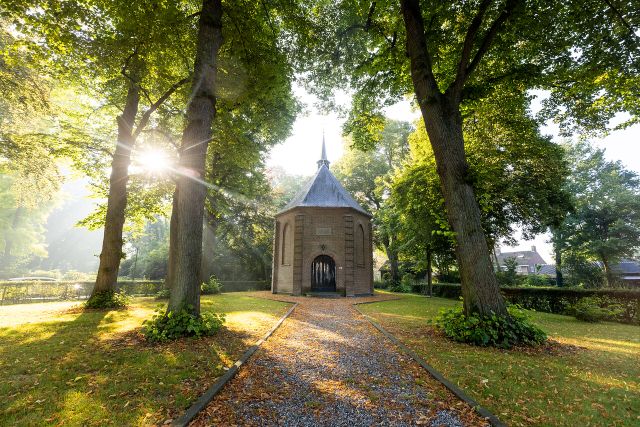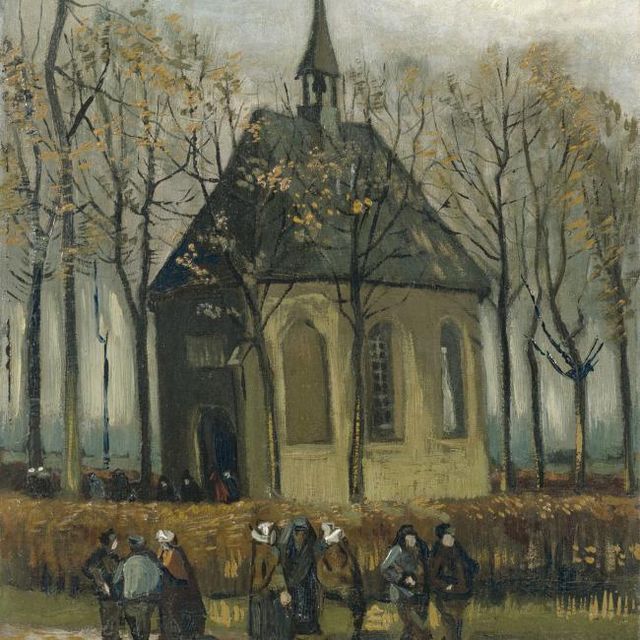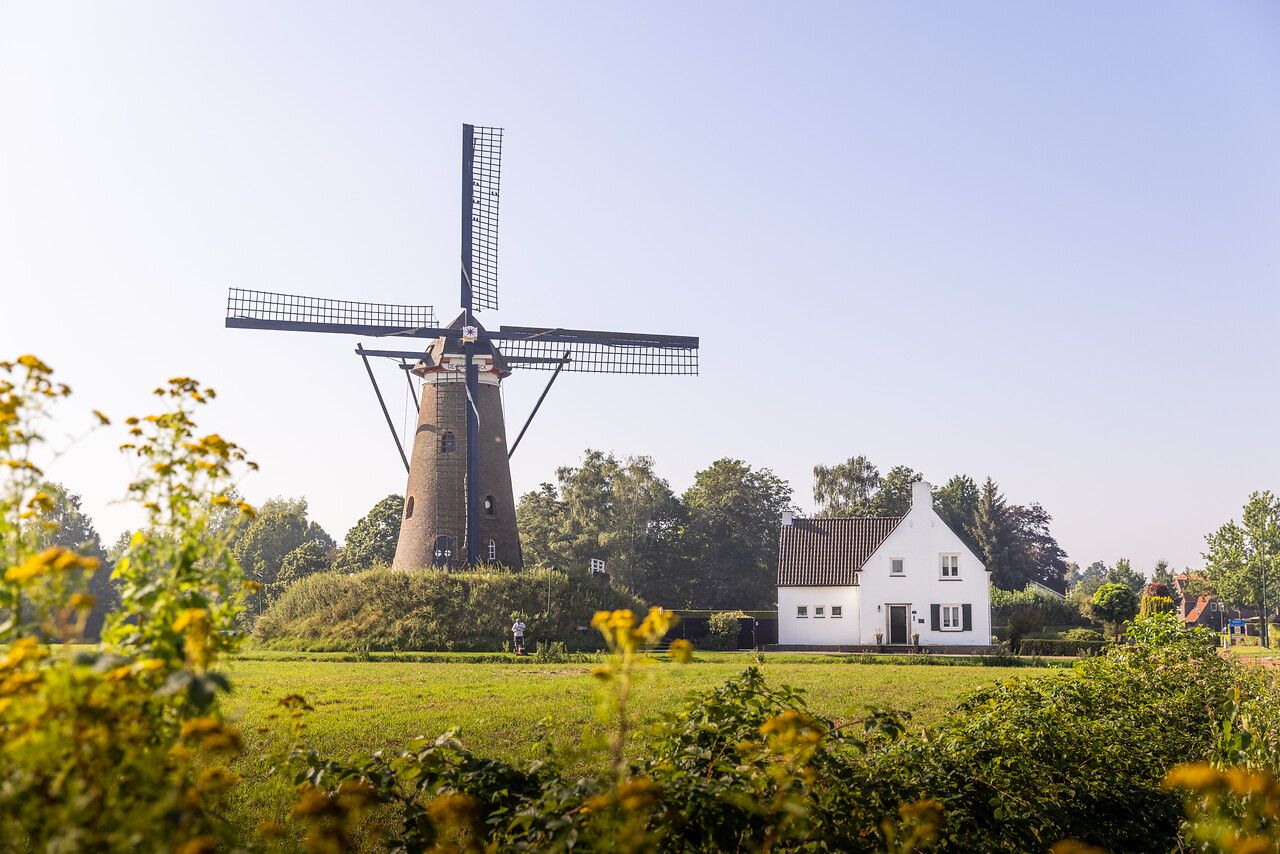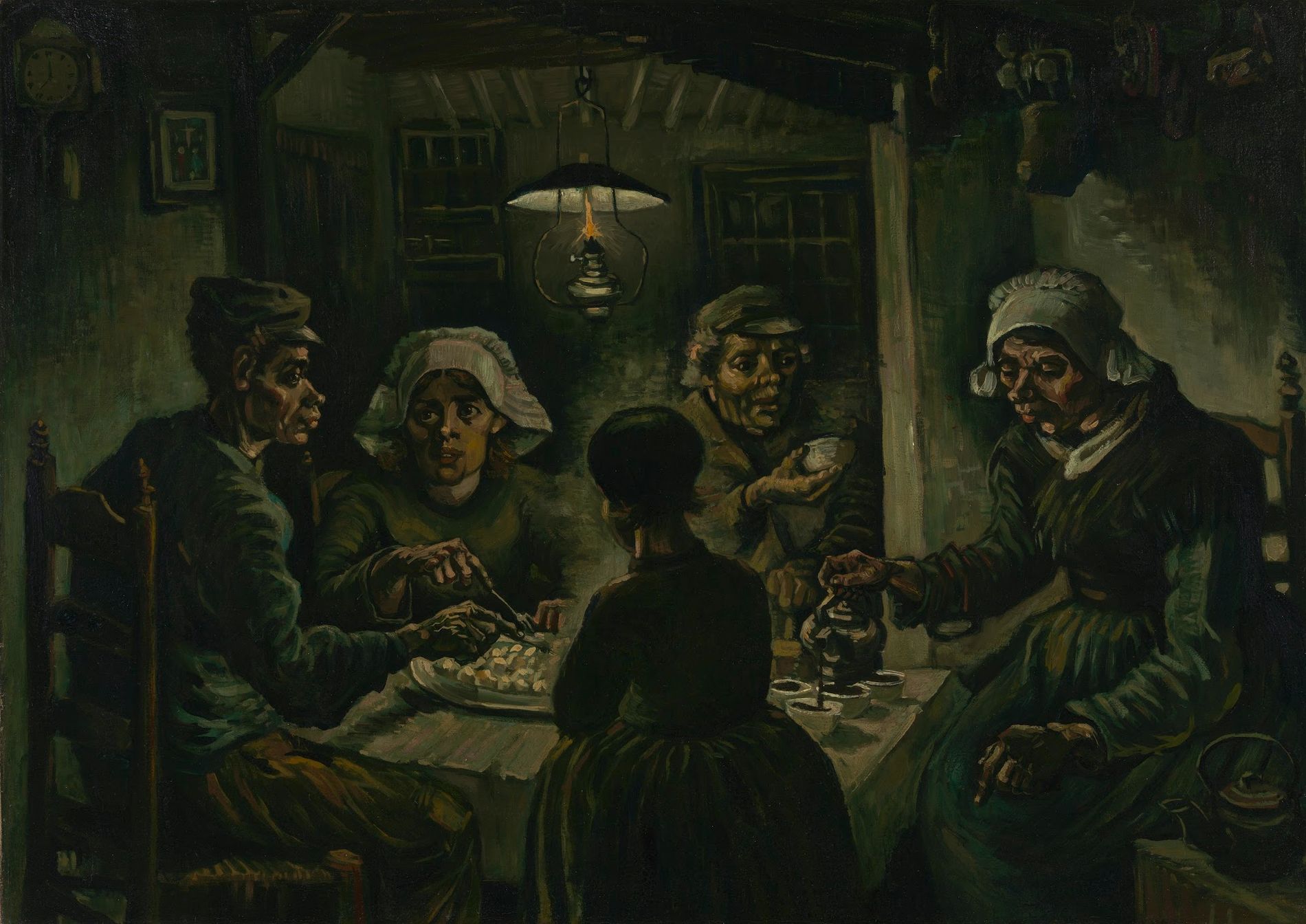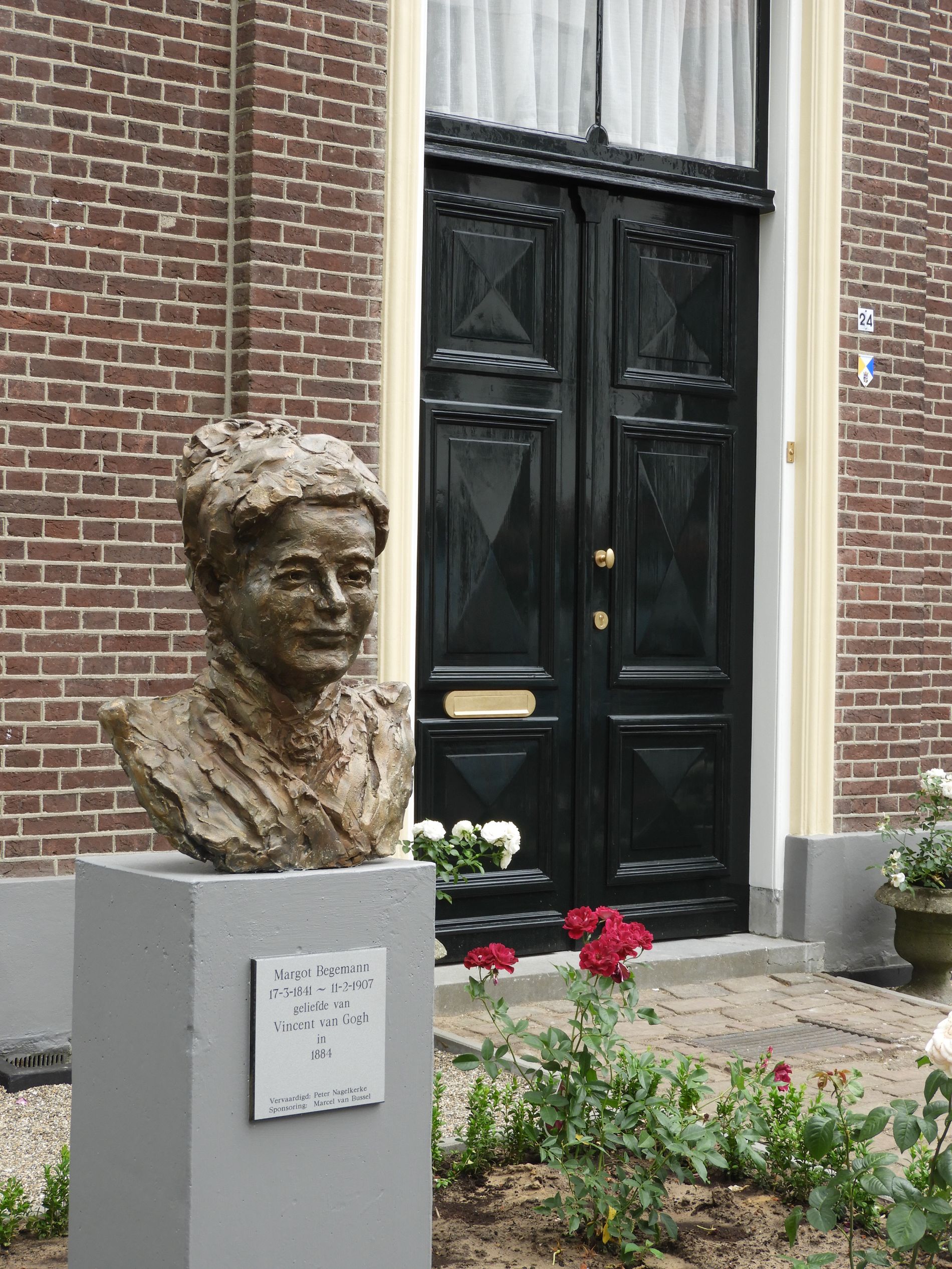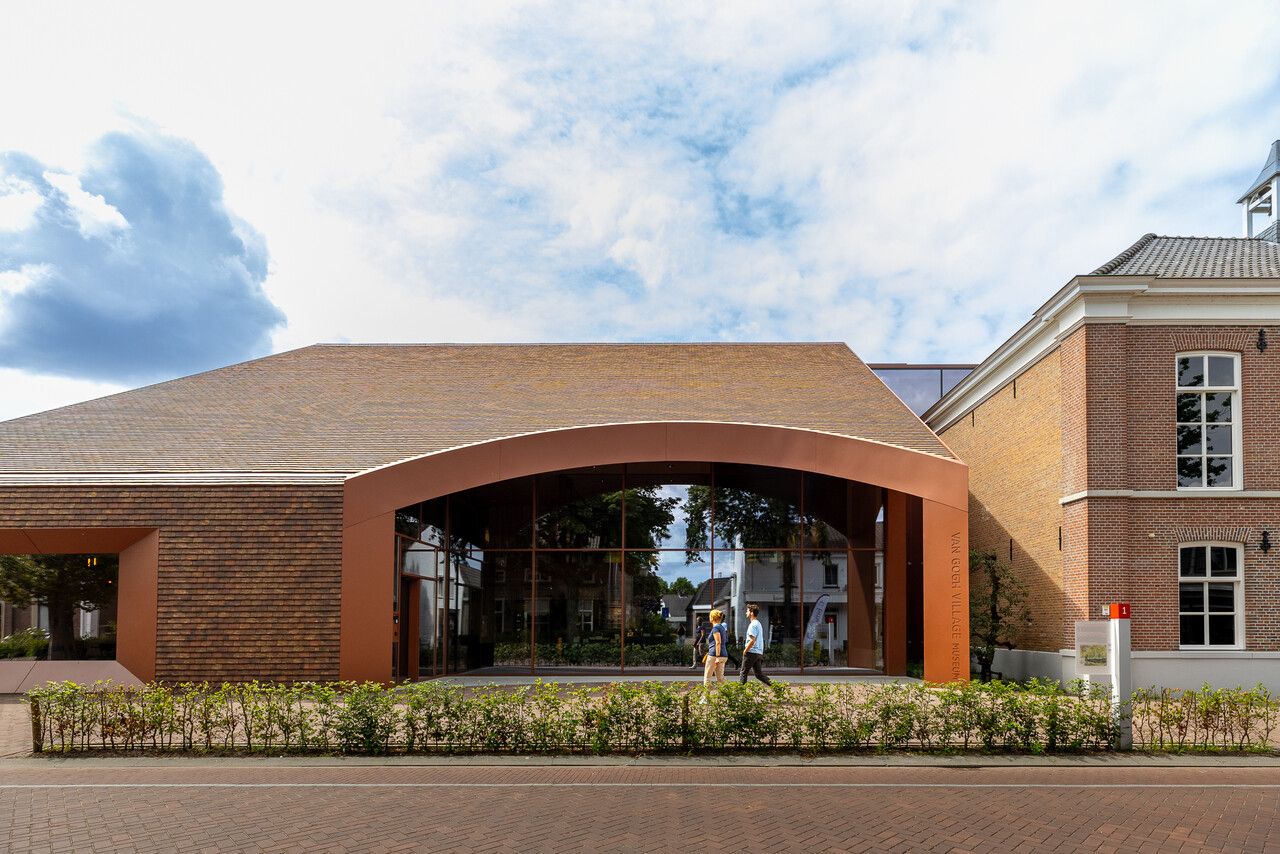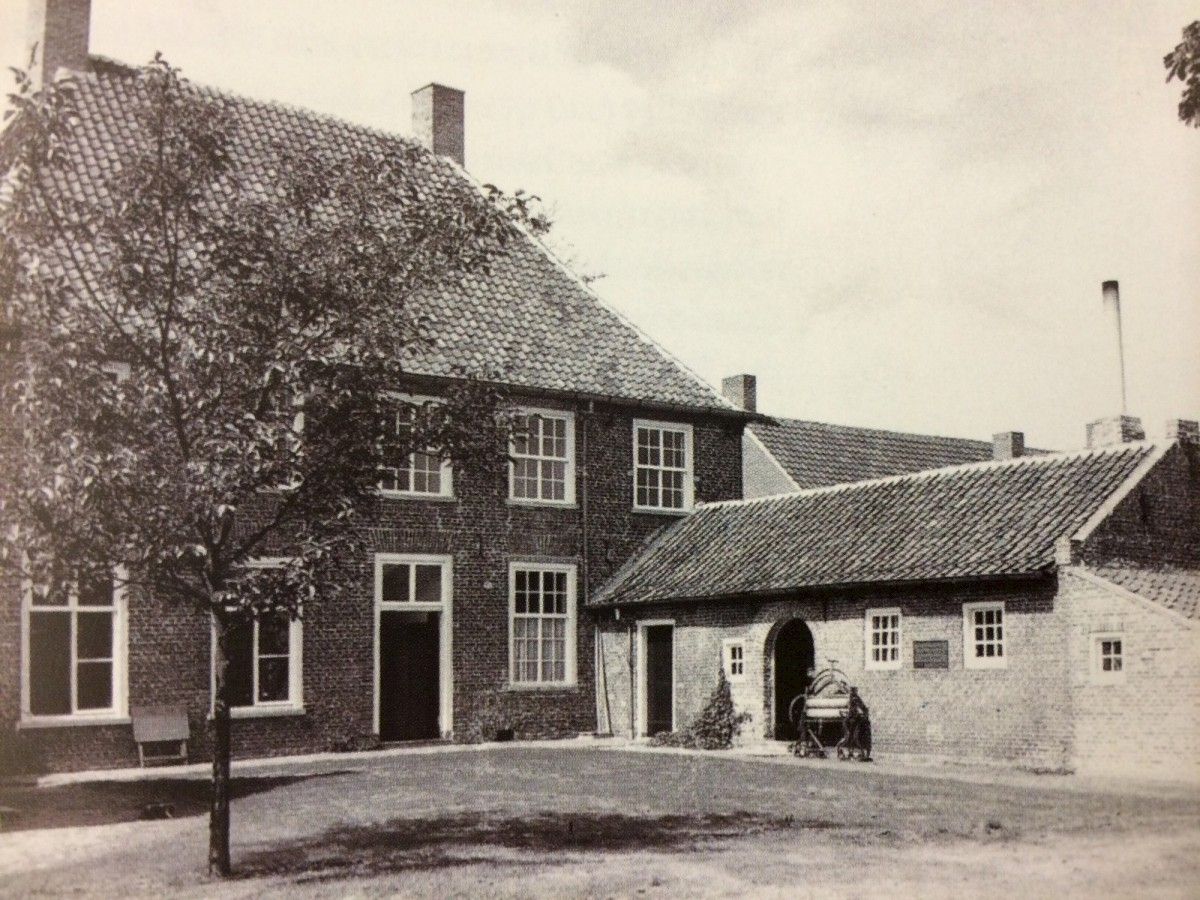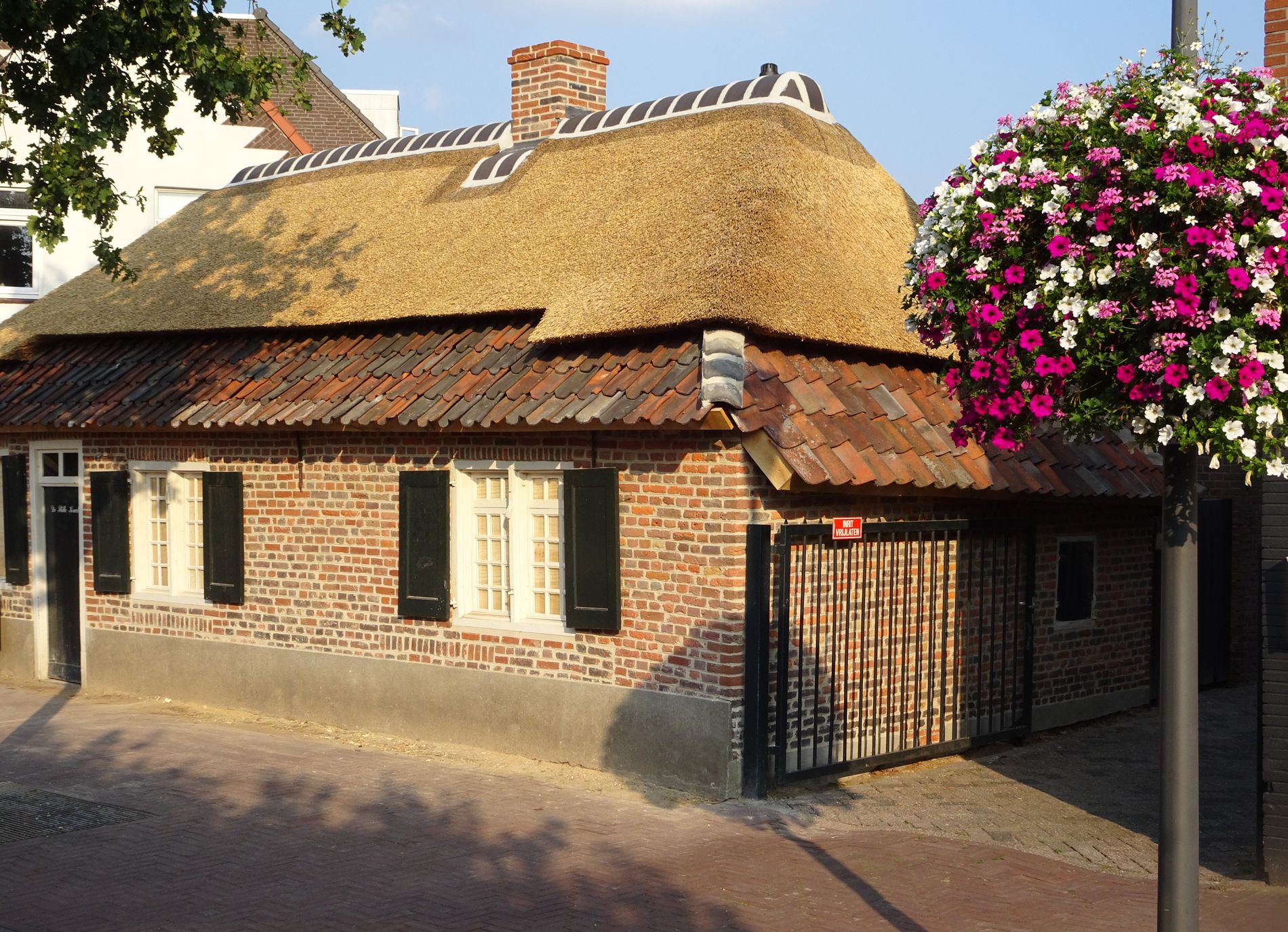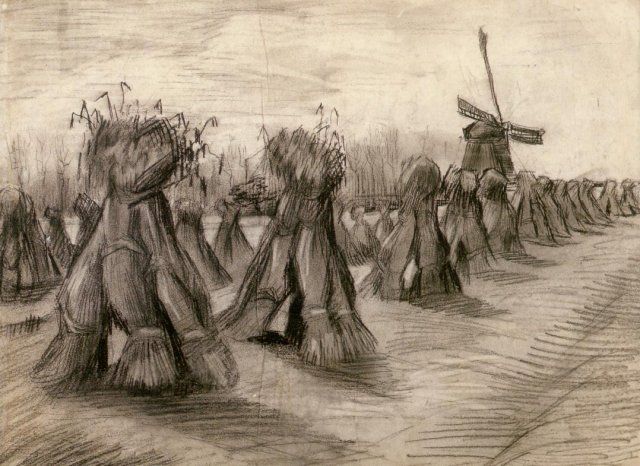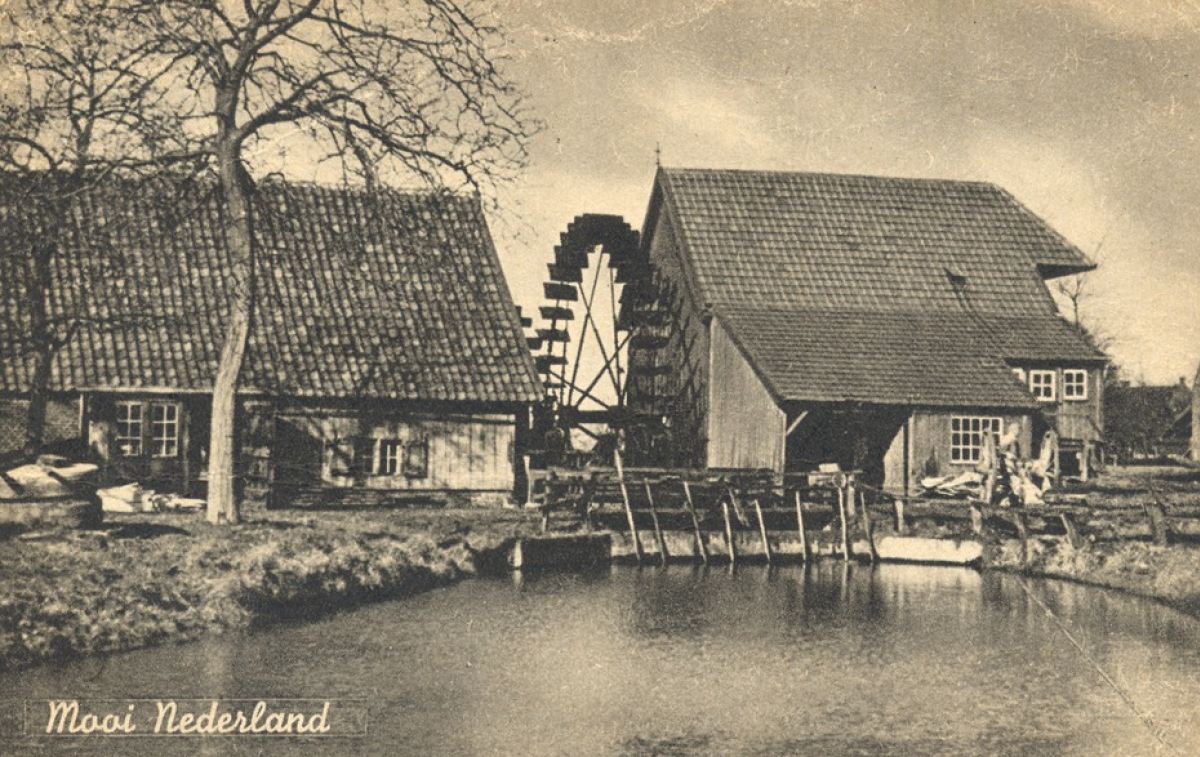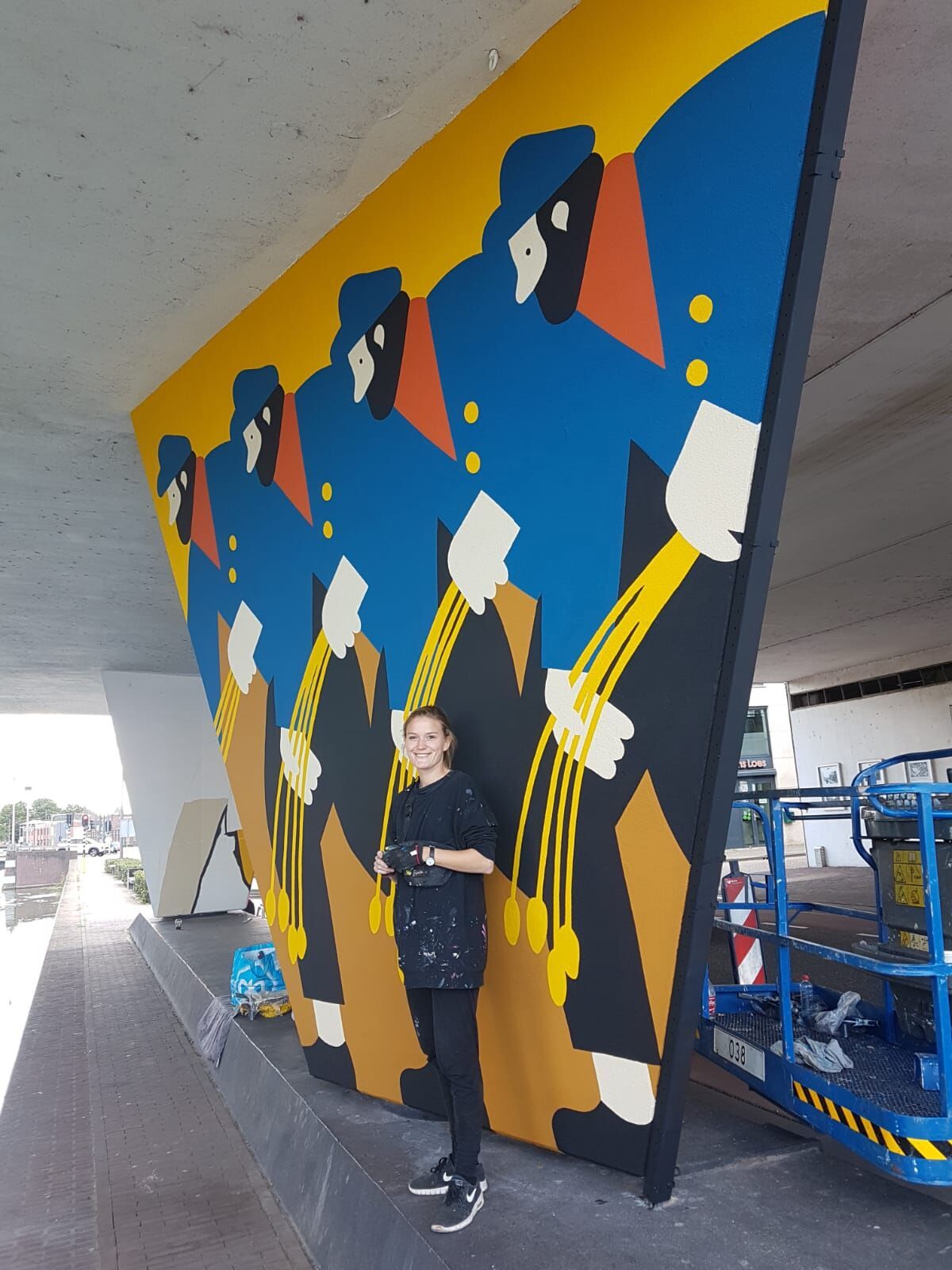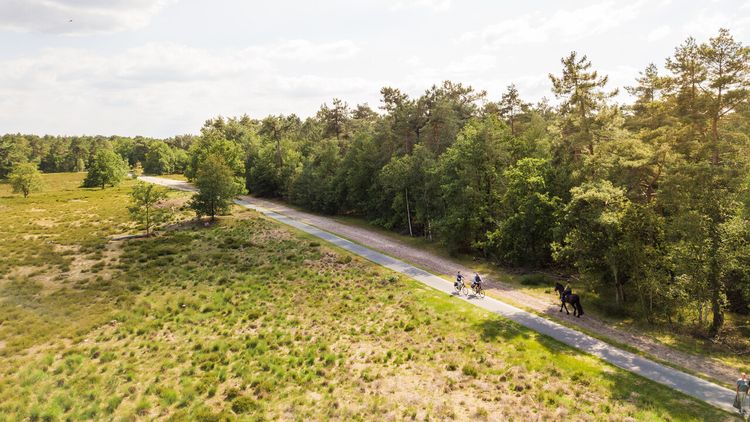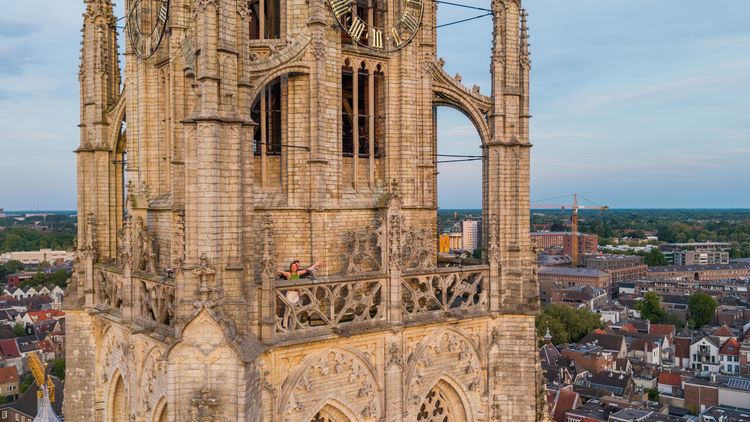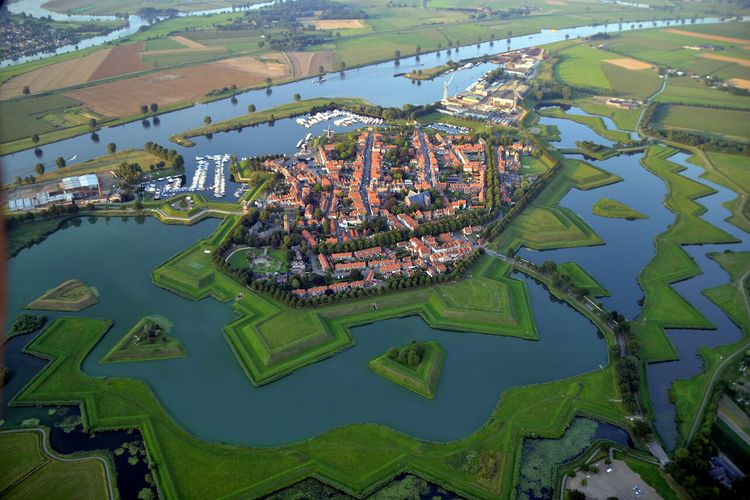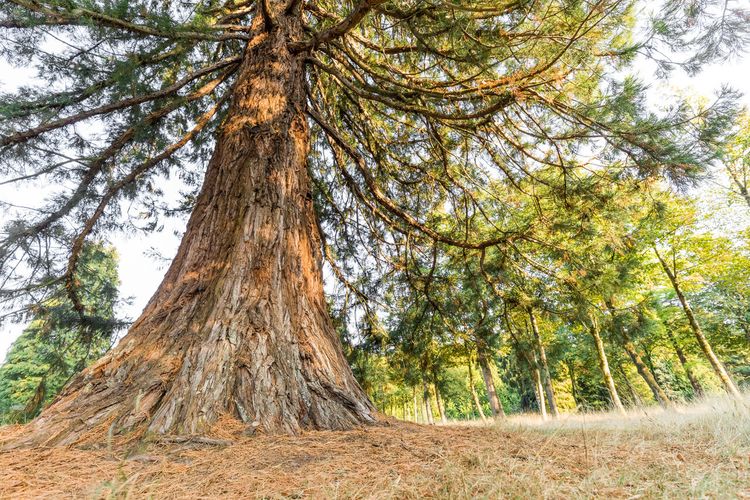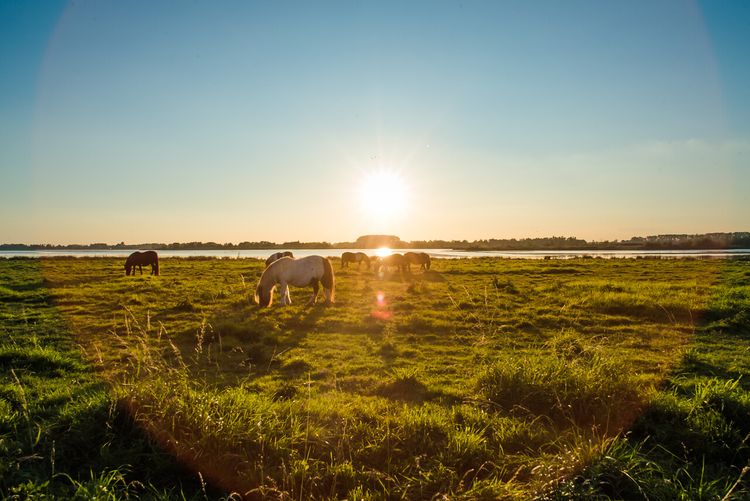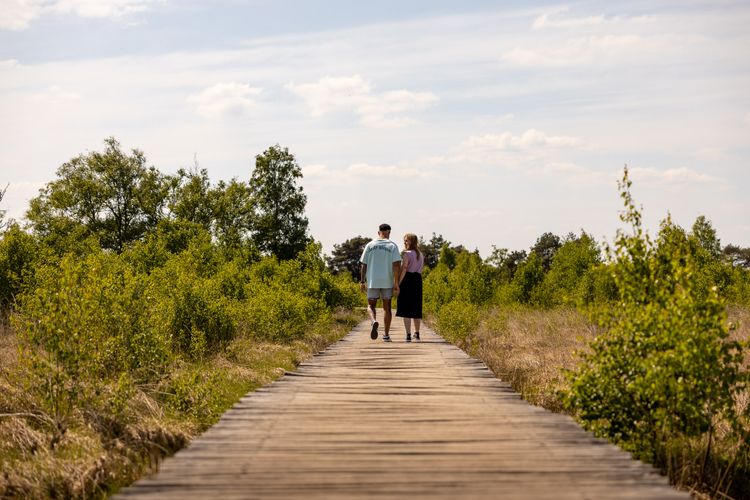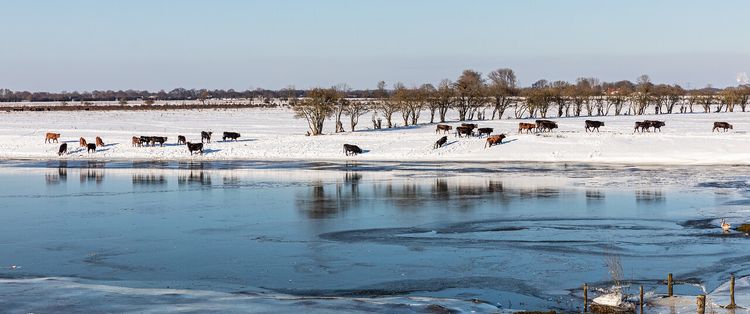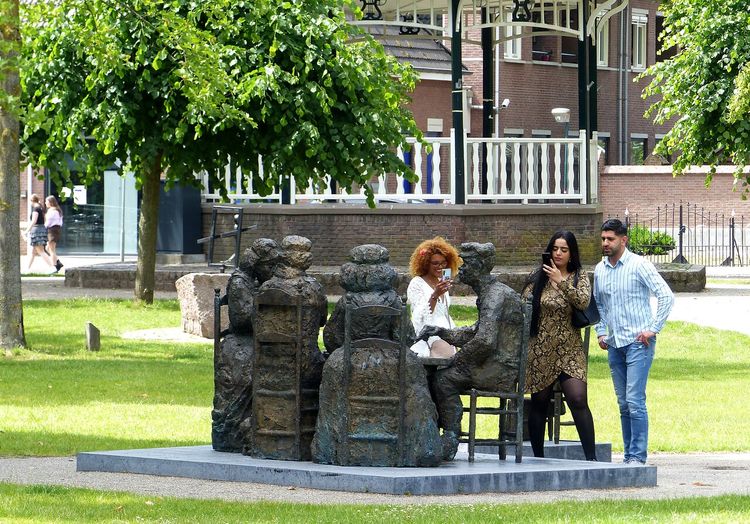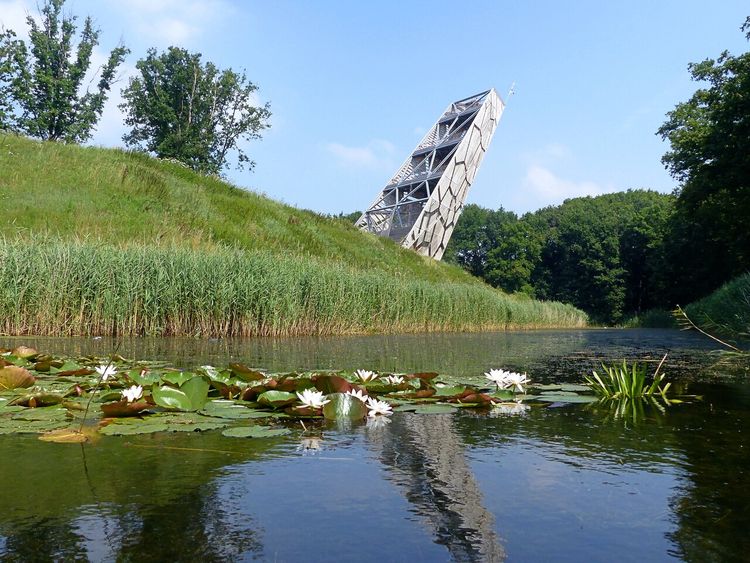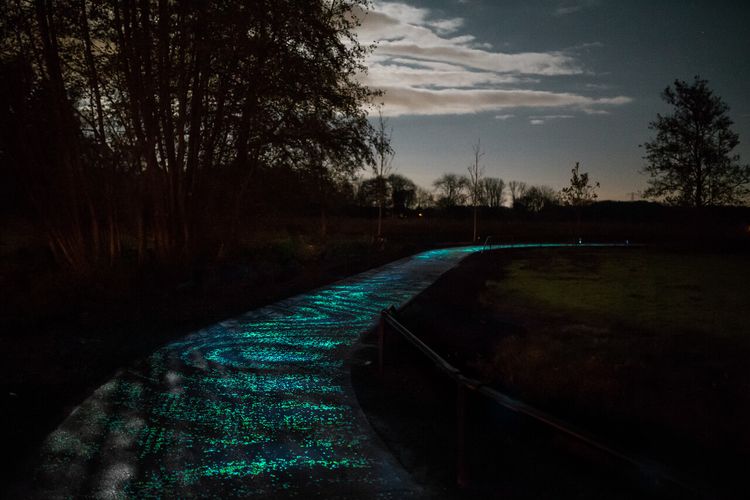Vincent van Gogh cycle route Nuenen
You will be cycling through a Vincent van Gogh painting on this route, past a unique collection of buildings, monuments and landscapes.
Starting point: from your location
Show all 12 photos
You will be cycling through a Vincent van Gogh painting on this route, past a unique collection of buildings, monuments and landscapes. You will cycle where Vincent once walked. Every now and again you can get off your bike right where he stood. See what he saw and painted. Unique!
This route starts at the Vincentre (Berg 29, Nuenen). The story is told inside and once you are back outside you can cycle past the places where Vincent lived, where he had his studio, where his lady friend lived, where he went to church and where ‘The Potato Eaters’ was painted. You can cycle alongside the Wilhelmina Canal to Lieshout (De Vogelenzang windmill, a Van Gogh Monument) with a nice detour towards Helmond, then via Stiphout and Gerwen back to Nuenen. Listen to the information columns along the route and get to know Vincent even better.
Discovering Van Gogh’s world in Nuenen
The Vincentre r…
You will be cycling through a Vincent van Gogh painting on this route, past a unique collection of buildings, monuments and landscapes. You will cycle where Vincent once walked. Every now and again you can get off your bike right where he stood. See what he saw and painted. Unique!
This route starts at the Vincentre (Berg 29, Nuenen). The story is told inside and once you are back outside you can cycle past the places where Vincent lived, where he had his studio, where his lady friend lived, where he went to church and where ‘The Potato Eaters’ was painted. You can cycle alongside the Wilhelmina Canal to Lieshout (De Vogelenzang windmill, a Van Gogh Monument) with a nice detour towards Helmond, then via Stiphout and Gerwen back to Nuenen. Listen to the information columns along the route and get to know Vincent even better.
Discovering Van Gogh’s world in Nuenen
The Vincentre recounts Vincent’s time in Nuenen, using photos, reproductions of his paintings, drawings and letters. The creation of Van Gogh’s first masterpiece, the Potato Eaters, naturally takes pride of place. There are several locations that Vincent painted within 400 metres of the Vincentre.
This is where the Van Gogh family lived from 1882 to 1885. Vincent lived there himself from December 1883 until May 1885. His parents had moved from Etten because father Van Gogh had accepted a new job as a preacher in Nuenen. Vincent van Gogh’s first studio was in an outhouse behind the rectory. He drew and painted the front and back of the building, which dates from 1764.
The Begemann family lived in the Nune Ville villa. When Vincent’s mother was recovering from a fracture, and he was looking after the house, Margot, one of the Begemann sisters, took over mother Van Gogh’s needlework lessons for a while. Vincent and Margot fell in love, but the families were opposed to the relationship. Margot was so upset by this that she swallowed some poison. Vincent wrote about it in his letters. The restored 19th century house can be visited on Saturday afternoons or by appointment.
Only one of the weavers’ houses that were so common in Nuenen in Van Gogh’s time, still exists. It was built in 1763 and is now a listed monument. It’s a perfect example of what the small cottages that the Nuenen weavers lived in looked like. Vincent was fascinated by the poor weavers. He drew and painted them working at their looms. The verger at the Van Gogh chapel lived in this house later on, which is how it got its other name ‘Verger’s House’. The house, which was restored in 2018, is now a bed & breakfast.
Vincent’s father preached at this small church from August 1882 to 25 March 1885. The chapel was built in 1824 and inaugurated in 1826. The vestry was added in 1928. The font, the copper lectern, the current pulpit, some of the communion silver and a Bible are still inside the chapel. Vincent van Gogh painted this church, which can be visited for free.
De Roosdonck windmill is still used for milling grain. The mill can be seen in the background of several of Van Gogh’s sketches and drawings. He made numerous drawings and paintings of windmills in his Brabant period.
In Vincent’s time, the farmhouse belonging to the De Groot family stood here. Vincent made a painting of this farmhouse and the family modelled for countless studies of farmers’ heads and hands. In 1885 he completed the painting of the Potato Eaters. It shows the De Groot family eating their meal. Vincent considered the Potato Eaters to be his first fully-fledged work.
This windmill on the Molendreef in Lieshout was constructed in 1819 and operates as a flour mill. Vincent van Gogh made two drawings of the Vogelenzang in 1885. It shows the mill with a cornfield and sheaves in the foreground.
The history of this mill goes back almost a thousand years. The mill has the largest mill-wheel in the Netherlands, with a diameter of more than 9 metres. This is one of three watermills that Vincent van Gogh captured on canvas. He worked beside the River Dommel with Anthon van Rappard, the artist he met in Brussels in 1880. The corn mill and sawmill are freely accessible the whole week. The Opwetten Watermill is an official Brabants Fietscafé; a Brabant Bicycle Café. In these bicycle cafés, cyclists are made to feel especially welcome!
You can make a diversion from junction 35 to reach the Van Gogh-Roosegaarde cycle path. The unique cycling path is inspired by The Starry Night by the master painter Vincent van Gogh. After dark visitors will be amazed by a design of light and colour. A magical experience.
From May 1884, Vincent rented two rooms from the Catholic verger Johannes Schafrat, whose house stood on this spot. Vincent had his studio here and this was where he painted his masterpiece, the Potato Eaters. The verger’s house was demolished in 1936. A picture of the artist with his painting easel in the front garden reminds us that Vincent had his studio here. Opposite this spot there is a group of statues depicting the Potato Eaters. Further to the north in the Park there is a statue of Vincent van Gogh.
Tip: you can make a 1.5 km diversion from the route at junction 3 to see an unusual mural. Artists Ilse Weisfelt was inspired by the peasant workers in Van Gogh’s paintings. The mural can be seen in the Kasteellaan near Kanaaldijk Noord-West. Photos: Hans van Berkenmortel.
How does the Van Gogh cycle route work?
The Van Gogh cycle route forms part of the cycle route network in Brabant. There is a Van Gogh cycle route sign at every intersection. Follow the Van Gogh cycle route signs from one numbered intersection to the other. Follow the cycle route network signs between the intersections. Ten short routes in the form of loops have been marked out. The routes are joined together by linking sections.
-
Signposting Van Gogh Cycle Route
Follow the signs with 'Van Gogh Route'. These are placed underneath the regular junction signs.
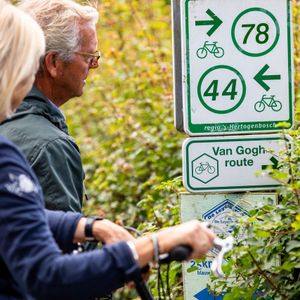
Signposting Van Gogh Cycle Route
Follow the signs with 'Van Gogh Route'. These are placed underneath the regular junction signs.

-
Hotline routes
Hotline routesIf there is something wrong on the route, report it here.
Sights on this route
Van Gogh Village Museum
Nuenen is an ‘outdoor museum’ with no fewer than 21 buildings and landscapes which have a direct relationship with Van Gogh in Nuenen. He produced a quarter of his total works in Nuenen, including his first masterpiece The Potato Eaters!
Starting point:
Berg 295671 CA Nuenen
Navigate to starting point
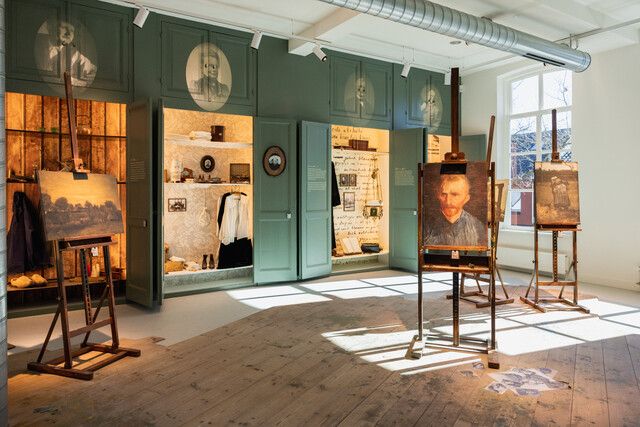
Workshop of Theo de Vries
For the series of head studies that Vincent produced in the winter of 1884–1885, he most likely used a perspective frame. He probably had the new perspective frame made by the local contractor and carpenter Theodorus de Vries.
Starting point:
Berg 34Nuenen
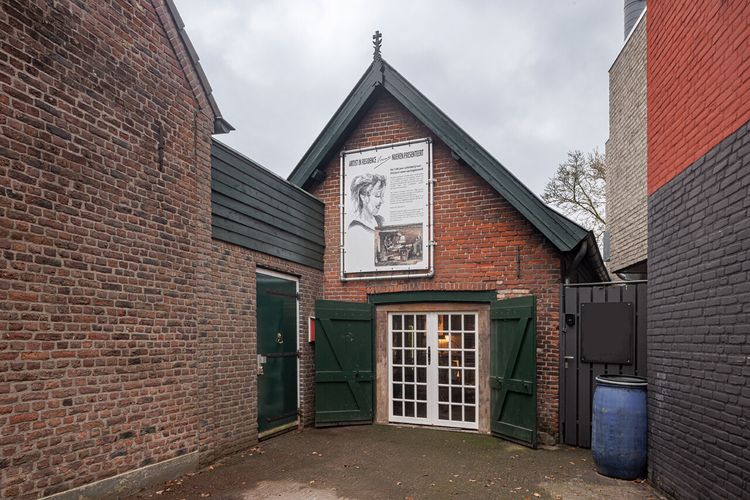
Weaver’s house
Built in 1763 as a weaver’s house. Later it became known as the ‘verger’s house’ because the owner – the verger/organist of the Reformed Church – lived here until 1967.
Starting point:
Berg 405671CC Nuenen
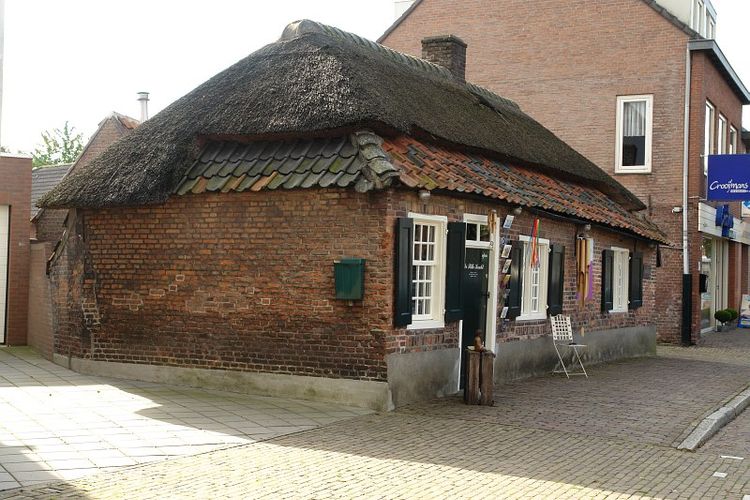
Van Gogh Monument by Hildo Krop
In December 1929 a committee was formed in Amsterdam whose aim was to commemorate the fortieth anniversary of Vincent van Gogh’s death with a permanent monument.
Starting point:
thv Berg 445671 CA Nuenen
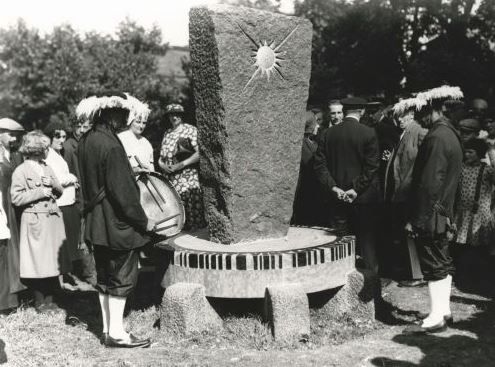
Van Gogh Church Nuenen
Vincent van Gogh’s father preached in this church in Nuenen.
Starting point:
Papenvoort 25671 CR Nuenen
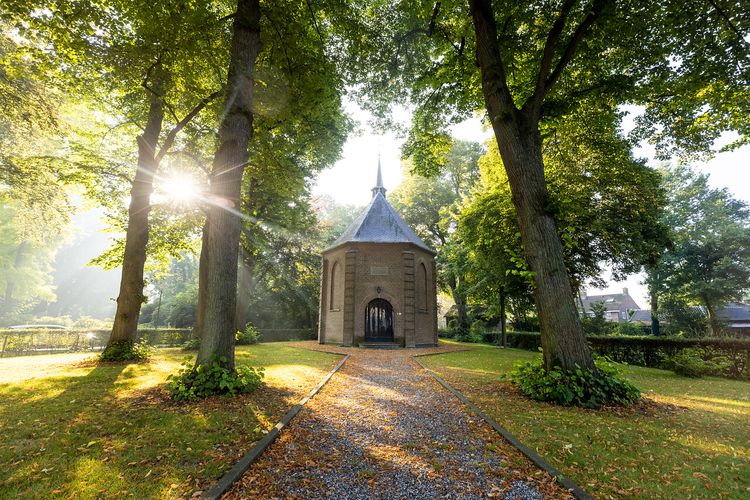
Textile Factory and Residence of Louis Begemann
In Nuenen, in the second half of the nineteenth century, there were five textile factories, including the linen factory of Jacobus Lodewijk Louis Begemann at what is now Berg 65.
Starting point:
Berg 65Nuenen
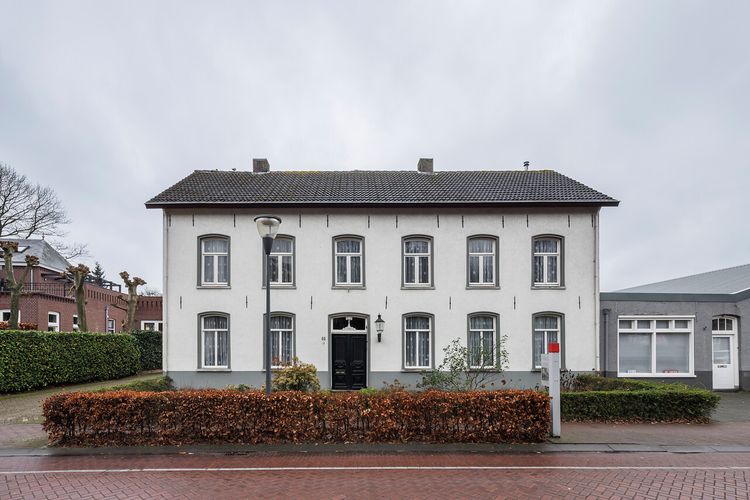
Textile Factory and Residence of Louis Begemann
Textile Factory and Residence of Louis Begemann
Berg 65
Nuenen
De Roosdonck windmill
The windmill that takes its name from the area in which it was built is located in the open countryside just north of Nuenen.
Starting point:
Gerwenseweg 25674 SG Nuenen

The Potato Eaters’ cottage
The farmhouse belonging to the De Groot family stood here in Vincent’s time. Vincent painted the farmhouse and the family acted as models for countless studies of peasants’ heads and hands.
Starting point:
Gerwenseweg 45674 SG Nuenen
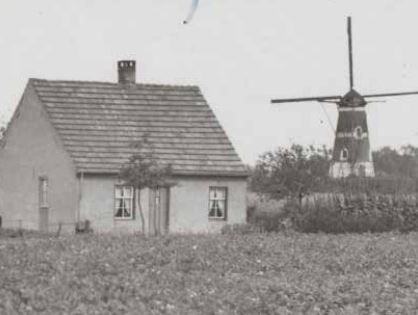
Saint Clement Church Gerwen
Vincent van Gogh drew St. Clement’s Church in Gerwen in December 1883.
Starting point:
Heuvel 23Gerwen
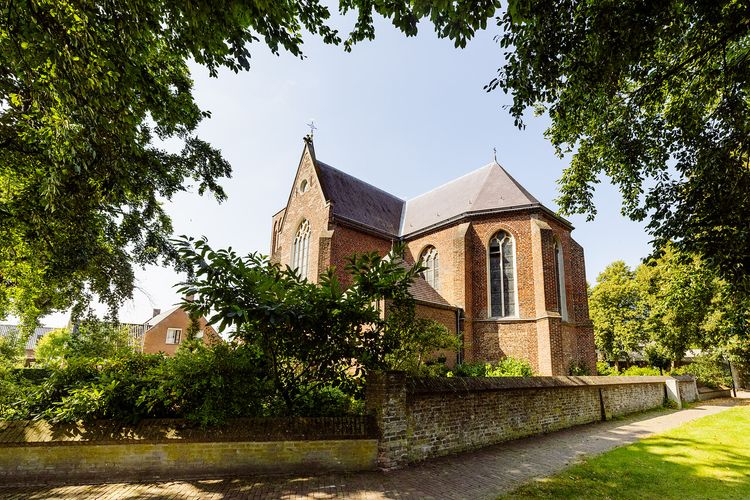
Van Gogh Mural Helmond
Artist Ilse Weisfelt was inspired by the workers in Van Gogh’s paintings.
Starting point:
5707 CC Nuenen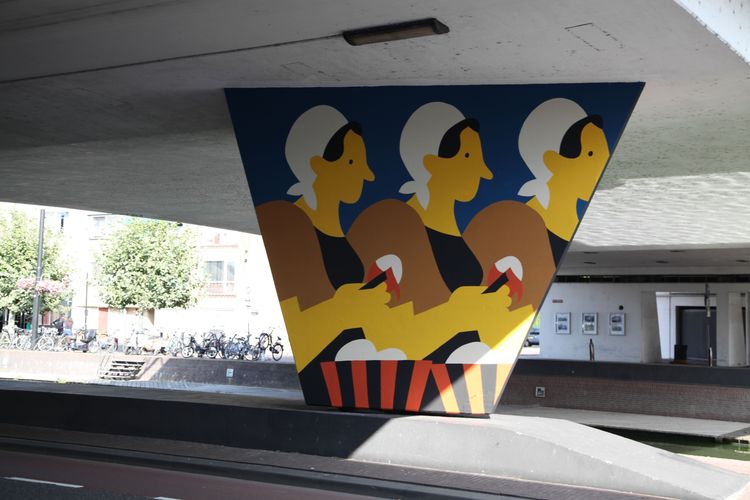
Vogelenzang/Bettmolen Corn Mill
The Vogelenzang or Bettmolen is a round stone mill located on the Molendreef in Lieshout.
Starting point:
Molendreef 65737 EP Lieshout
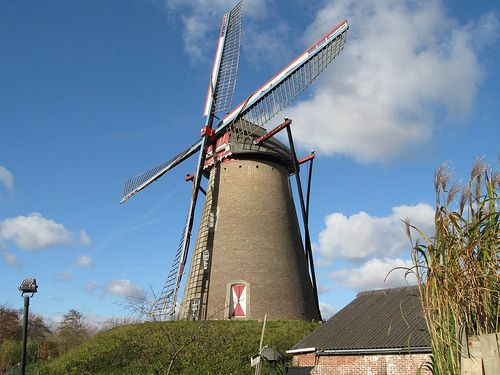
Broekdijk Avenue of Poplars
In 1884 Vincent Van Gogh painted ‘Avenue of Poplars in Autumn’ (F122), a depiction of the Schoteldonkse Hoeve farmhouse and the road leading to it.
Starting point:
Eikelkampen 3Nederwetten
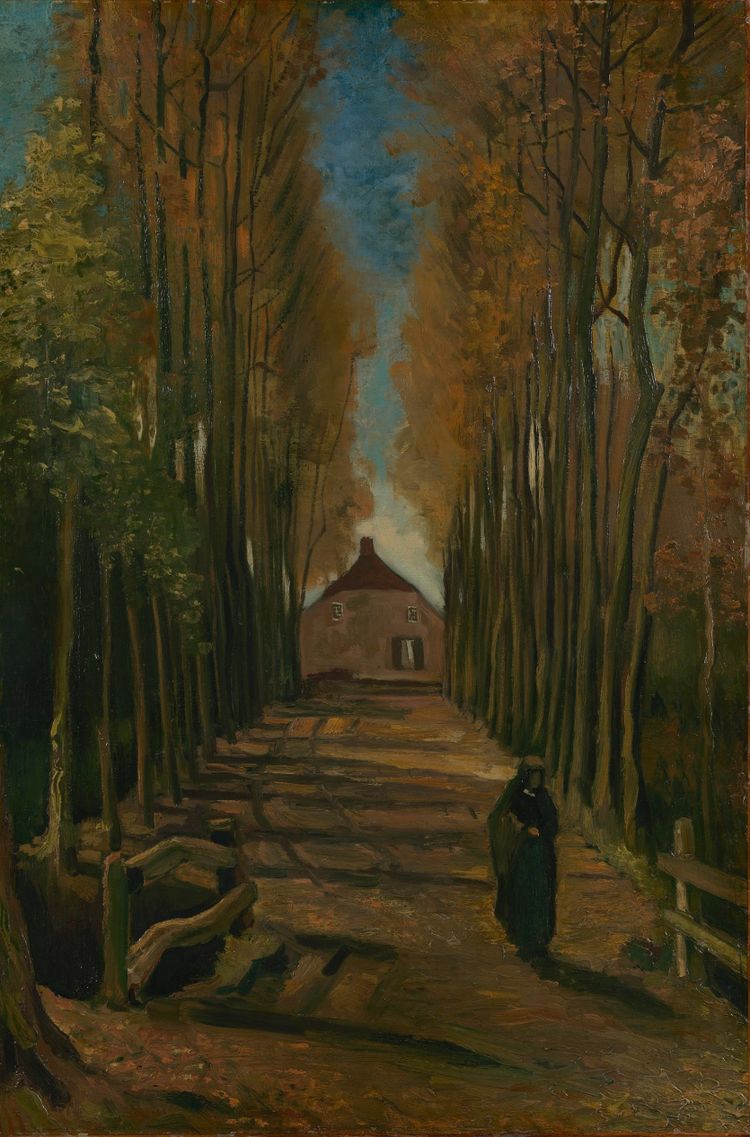
Van Gogh-Roosegaarde cycle path
There is a unique cycle path in Eindhoven, just outside Nuenen which was inspired by The Starry Night by the master painter Vincent van Gogh.
Starting point:
Van Gogh-Roosegaarde FietspadEindhoven
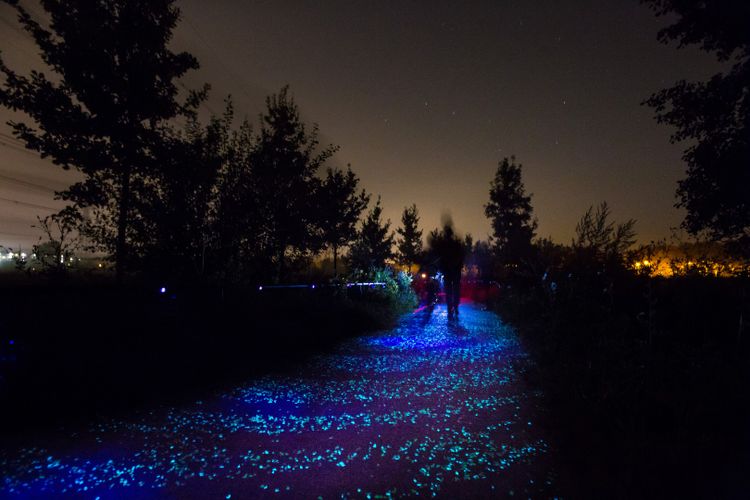
Van Gogh-Roosegaarde cycle path
Van Gogh-Roosegaarde cycle path
Van Gogh-Roosegaarde Fietspad
Eindhoven
The Opwetten Watermill
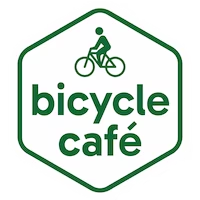
There’s something quite unique about the Opwetten Watermill because where else in the world can you find yourself inside one of Vincent van Gogh’s paintings?
Starting point:
Opwettenseweg 2035674 AC Nuenen
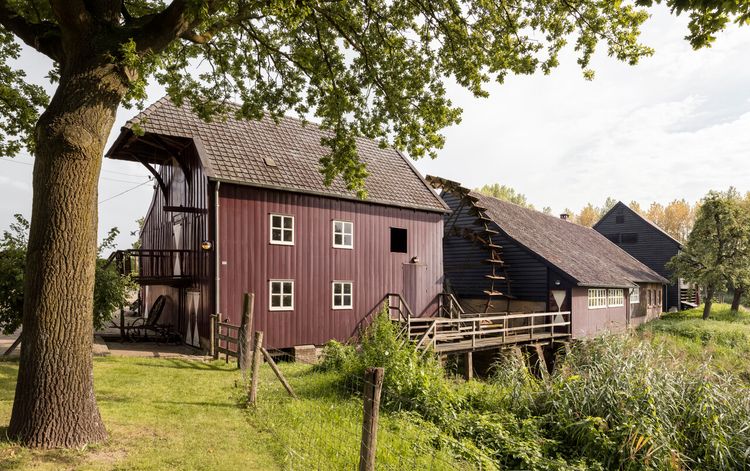
Old Tower and father Van Gogh’s grave
We now look over the fields, but here Vincent saw the old tower of 15th century church with cemetery. He loved the church and the cemetery. He made 35 drawings and paintings of this place.
Starting point:
Tomakker 25673 LE Nuenen
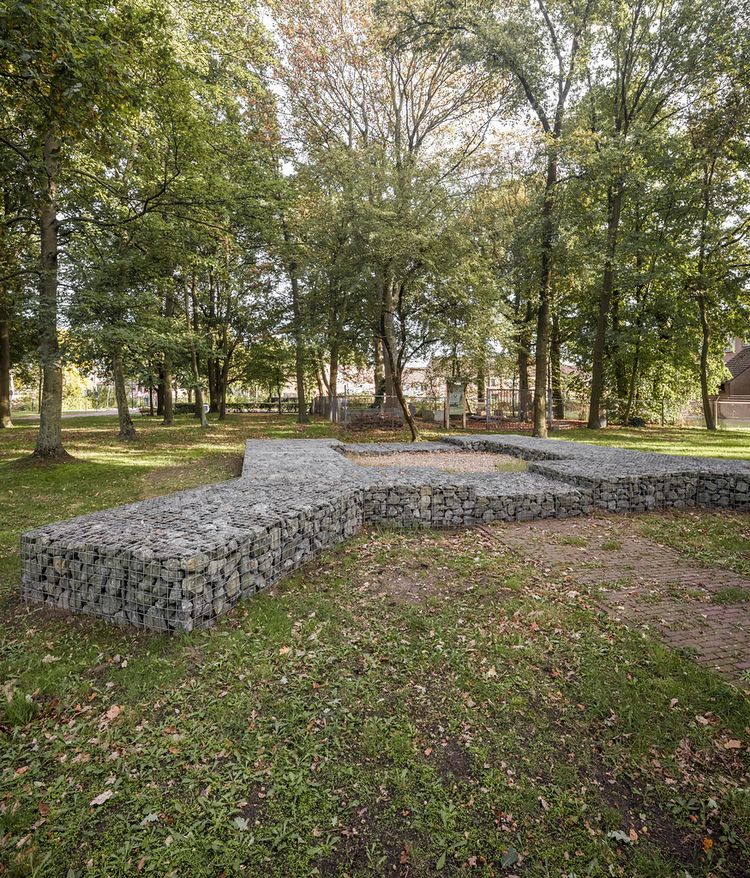
Old Tower and father Van Gogh’s grave
Old Tower and father Van Gogh’s grave
Tomakker 2
5673 LE Nuenen
Saint Clement Church Nuenen
Close to the Heilige Clemenskerk in Nuenen, Vincent van Gogh had his first studio.
Starting point:
Park 535671 GC Nuenen
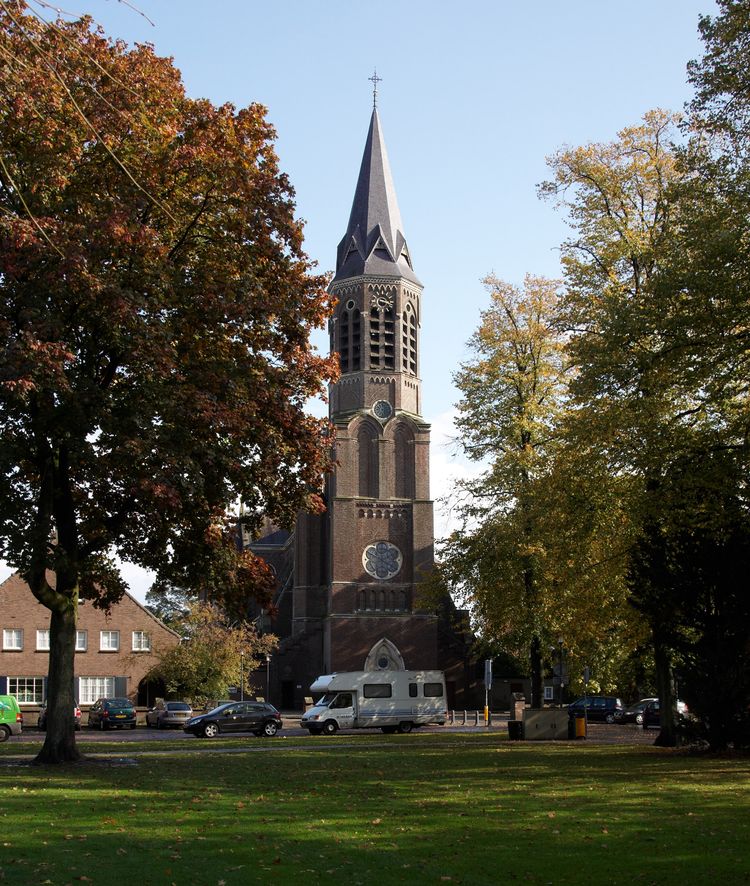
House of sexton Schafrat and Het Park
Vincent rented two rooms from May 1884 from the Catholic sexton Johannes Schafrat, whose house stood on this spot.
Starting point:
Park 515671 GC Nuenen
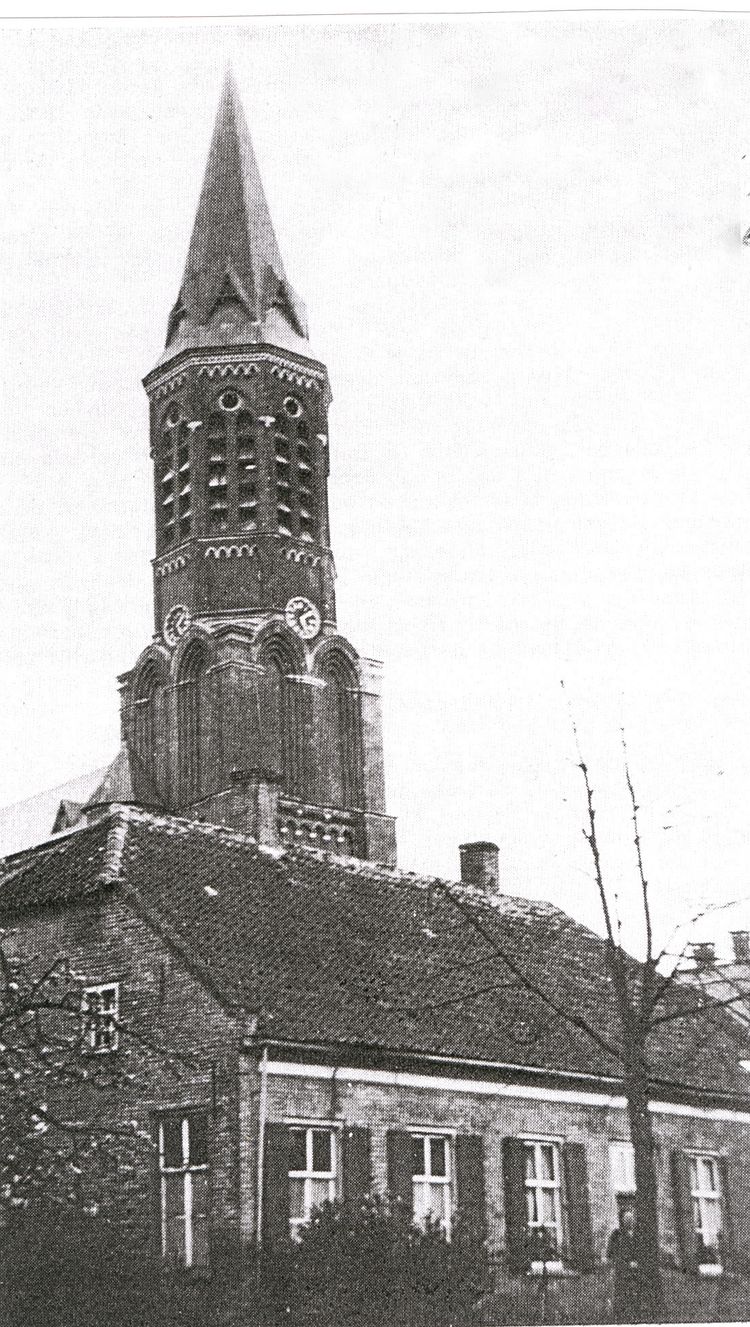
Salon Nune Ville
Follow in the actual footsteps of Vincent van Gogh and Margot Begemann in Salon Nune Ville: the family home of Margot, the woman with whom Vincent experienced a dramatic love affair.
Starting point:
Berg 245671 CC Nuenen
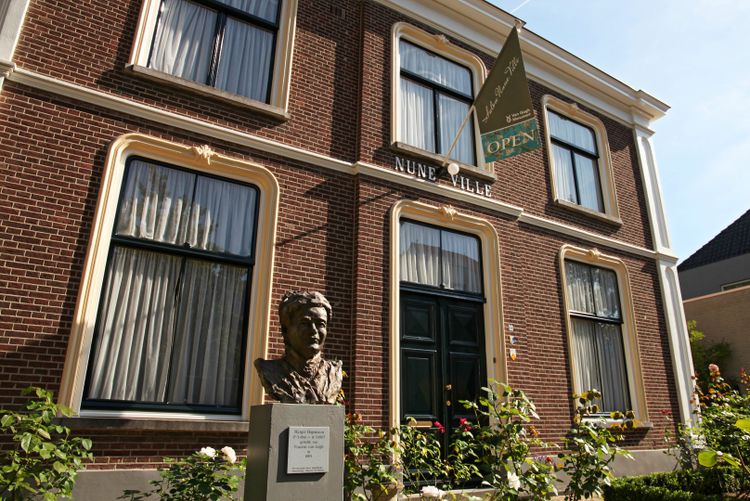
Vicarage and garden
The Van Gogh family lived here from 1882 to 1885, with Vincent living there from December 1883 to May 1884.
Starting point:
Berg 265671 CC Nuenen
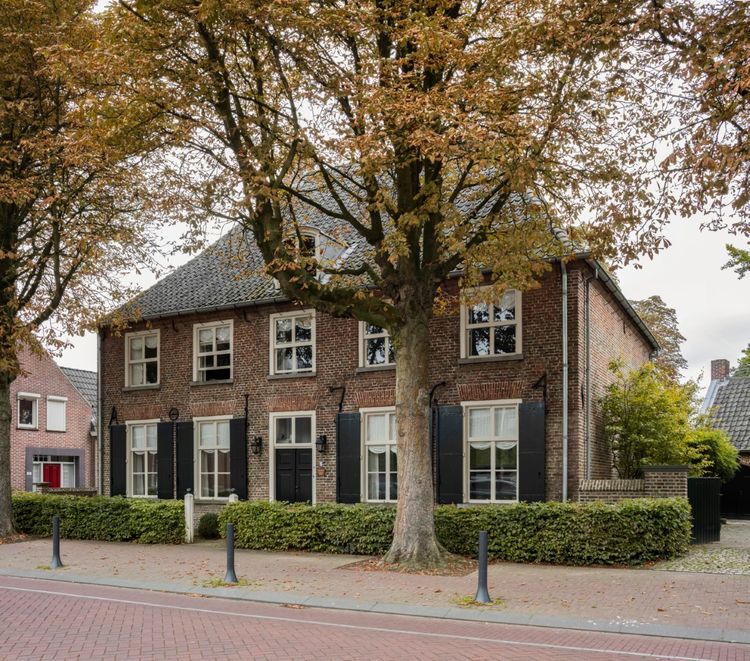
Van Gogh Village Museum
Nuenen is an ‘outdoor museum’ with no fewer than 21 buildings and landscapes which have a direct relationship with Van Gogh in Nuenen. He produced a quarter of his total works in Nuenen, including his first masterpiece The Potato Eaters!
Starting point:
Berg 295671 CA Nuenen
Navigate to endpoint

- 79
- 78
- 74
- 70
- 62
- 61
- 03
- 6
- 59
- 93
- 92
- 71
- 63
- 72
- 9
- 08
- 98
- 80
- 81
- 35
- 34
- 79

